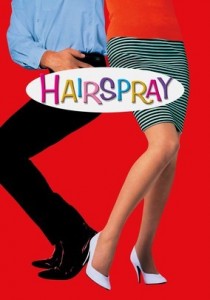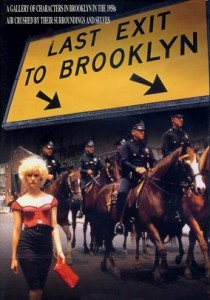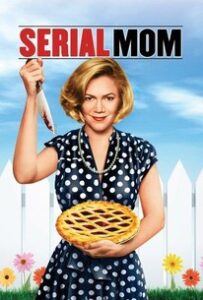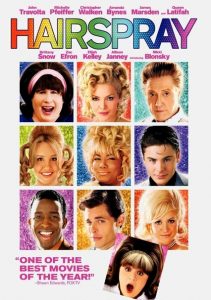Working Girl-1988
Director Mike Nichols
Starring Melanie Griffith, Harrison Ford, Sigourney Weaver
Scott’s Review #748
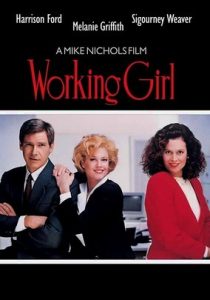
Reviewed April 26, 2018
Grade: B+
Released during a decade known for excess, fun, and light comedy films, especially during the latter half, 1988’s Working Girl was a blockbuster hit at the time, and in modern times is perfectly nestled as an identifier of the decade itself.
This can be both good and bad with both a dated feel and also a whimsical, basic good girl versus a bad approach that is appealing.
The film is romantic comedy fluff but is entertaining and features lovely views of New York City- one of my very favorite locales.
The film is directed by Mike Nichols, known more for the heavier subject matter (1966’s Who’s Afraid of Virginia Woolf and 1967’s The Graduate). His leading of the picture, as well as all-star casting, surely made this film better than it ought to have been.
Tess McGill (Melanie Griffith) commutes via the Staten Island Ferry each morning into vast Manhattan where she holds a secretarial job at a Wall Street investment bank. When she has a bad experience with one of the brokers, she is reassigned to a female boss, the assertive Katharine Parker (Sigourney Weaver).
After Katharine steals Tess’s business idea and passes it off as her own to get in good with handsome Jack Trainer (Harrison Ford), Tess is determined to reveal the truth as a triangle develops between the three individuals.
In tow are Tess’s best friend Cynthia (Joan Cusack) and her cheating boyfriend, Mick (Alec Baldwin) in supporting roles.
Working Girl feels overwhelmingly like a “1980s film” and while relevant at the time and kindly nostalgic, the film does not hold up well in modern times, rather seeming to be suited for a time capsule, unlocked from time to time for kicks.
The most garish example is the hideous hairdos that Nichols has Tess and Cynthia don- frizzed out and caked with aqua net hairspray is over-the-top even for the 1980s.
Then there are the inevitable tacky outfits complete with bright colors and shoulder pads as the girls hustle to their dull jobs. With these costume tidbits in addition to the filming style the tone just screams the 1980’s.
The casting of the three leads is very good- Griffith, Ford, and Weaver all share nice chemistry and the clear rooting value is for Tess and Jack to live happily ever after- with Katharine as the obvious foil.
The conclusion of the film is of little surprise, but as a romantic comedy, this is standard fare. The point is that the relationships are dynamic and the ride is fun. Griffith is quite breathy and seductive in her role- a clear homage to the talents of Marilyn Monroe in her 1950s-era films.
Never known for great acting, Tess is the role of a lifetime for Griffith. Weaver sinks her teeth into an against-type villainous role and Ford is dashing and charismatic as the leading man.
My favorite parts of Working Girl, and the strongest aspects of the film, leaving an indelible impression even after all of these years, are the sweeping camera sequences of New York City featured throughout the film.
Lots of scenes were shot in neighboring Staten Island, but the best shots of all are the luminous skylines of Manhattan that encompass the opening sequence and later, viewpoints from the corporate offices.
There we see Tess on the Ferry heading across the Hudson River all with the wonderful soundtrack song by Carly Simon, Let the River Run, playing in the background. The soothing tune and the approaching mammoth city set a nice tone.
The story itself is a sort of rags to riches, Cinderella-style experience from the point of view of Tess. Taking night classes to better herself and clearly, a blue-collar type battling the giants of the corporate world and the more sophisticated Katherine (she speaks fluent French!) is an enormous draw of the film to sustain mainstream audiences.
Corporate greed versus the little guy is an adept comparison here. Almost borderline fairy tale, the fact that Tess gets the dashing Jack (in real life he would undoubtedly be with Katharine) makes the film good, escapist fare.
The working-class Staten Island versus the sophisticated Manhattan is another theme worth mentioning.
Thirty years beyond its original release. 1988’s Working Girl now seems dated, dusty, and of its time like many similar style films, but does still contain some of the enjoyment undoubtedly beholden to it at the time of release.
A film that is fine to take out of the vault, dust off, and enjoy for some good escapist cinema and a predictable story of good overcoming bad.
Oscar Nominations: 1 win-Best Picture, Best Director-Mike Nichols, Best Actress-Melanie Griffith, Best Supporting Actress-Joan Cusack, Sigourney Weaver, Best Original Song-“Let the River Run” (won)
